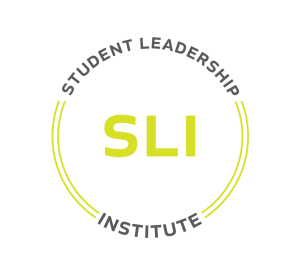Are you looking for ways to enhance training and development of your Orientation Leaders?
The virtual Student Leadership Institute (SLI) is for all new and returning undergraduate orientation and extended orientation leaders, regardless of their experience working with OTR programs.
SLI is an interactive learning opportunity that cultivates leadership and teamwork, and prepares students to be confident and successful in their roles. Students will have an opportunity to meet other students in similar roles and will be able to share their experiences.
NODA is offering three institutes to choose from in 2025:
March 25 & 26, 2025 (2:00-5:00 PM CST)
This session is intended for new or returning student orientation and transition program leaders.
April 8 & 9, 2025 (2:00-5:00 PM CST)
This session is no longer accepting registrants.
July 9 & 10, 2025 (2:00-5:00 PM CST)
This session is intended for new or returning student orientation and transition program leaders who work with August programs, including Welcome Week, August orientation, semester-long orientation, mentoring, international student orientation, and FYE classes.

Each registrant will participate in two 3-hour virtual workshop sessions. The sessions will be a combination of large group presentations and small group discussions led by NODA faculty. Students will work through a curriculum covering leadership theories, facilitation skills, conflict resolution, community building, and navigating the unique stresses of post-pandemic leadership. The topics will be relevant for both new and returning orientation leaders.
Registration Fees
Early Bird Rate (Ends 30 Days Before)
Registration fee: $75
Regular Rate (Ends 14 Days Before)
Registration fee: $85
Late Rate (Ends 7 Days Before)
Registration fee: $105
Bulk Registration
Save when registering multiple students! The following discounts will be applied automatically during checkout:
- 10+ Students, Save 15%
- 20+ Students, Save 20%
- 30+ Students, Save 25%
- Theme: Leadership Style and Skills
- Outcome: Understand and practice leadership styles, skills, and strengths, both personally and in the context of a team environment.
- Foundational: Participate in discussion or activities to identify your leadership style, skills, and strengths and set goals for leadership development.
- Intermediate: Understand strengths and areas of growth, both personal and team-wide, and articulate how these impact each other.
- Advanced: Develop strategies to facilitate the creation of cohesive teams that are grounded in personal and team-wide leadership skills and strengths.
- Theme: Communication and Facilitation
- Outcome: Learn and demonstrate skills essential for communicating verbal and nonverbal messages professionally, clearly, and effectively as they pertain to the intended goal.
- Foundational: Participate in discussions or activities that employ effective, meaningful, and respectful communication among individuals or a larger group.
- Intermediate: Understand how to tailor your messaging and approach to various audiences to achieve the intended goal.
- Advanced: Develop and practice higher level communication and conflict management skills that underpin effective peer role modeling.
- Theme: Access, Belonging, and Community
- Outcome: Develop and practice inclusive leadership skills that support a welcoming environment for new students.
- Foundational: Participate in discussion regarding access, belonging, and community topics and how these impact their work as leaders in the field of orientation, transition, and retention.
- Intermediate: Articulate the importance of their own and others’ intersecting backgrounds and recognize the impact of varying perspectives and experiences within our work.
- Advanced: With peers, develop an action plan to design and implement activities that reflect good pedagogical practices and consider the unique needs of all new students.
- Theme: Teamwork and Collaboration
- Outcome: Develop and practice teamwork and collaboration skills for effective work in diverse group settings
- Foundational: Recognize your role in empowering team members and how team building activities can build trust and collaboration.
- Intermediate: Facilitate a team building activity that promotes trust and requires collaboration, critical thinking, and creative solutions.
- Advanced: Develop a strategic plan to analyze challenges from multiple perspectives, work towards consensus-based solutions, facilitate resolution, and maintain positive team dynamics.

